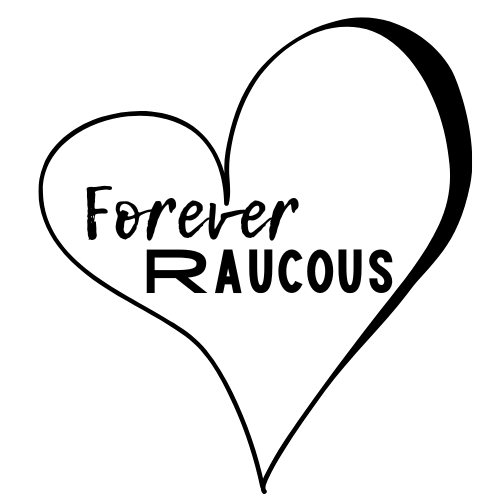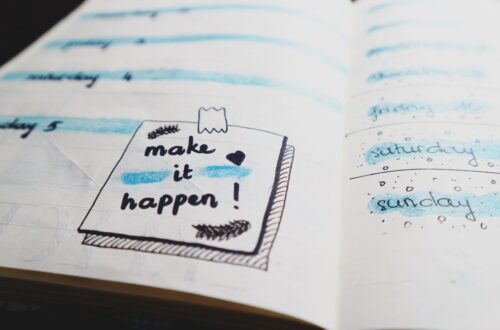Coping With Birth Related Post-Traumatic Stress Disorder

Seeing as it’s Maternal Mental Health Awateness Week, I thought it would be a good time to talk about birth trauma and PTSD. The birth of The Biggest was a profoundly traumatic time, all kicked off by the presence of meconium in my waters when they went at home at 5am, when I was 40+2. I had actually written another in depth blog about it, but it got too much. To summarise, my birth was difficult for the following reasons;
- A horrific sweep experience
- Induction on the drip
- Being told I needed a c-section and the wording of the doctor making it appear it was because it was a more convenient time for them. I was prepped, gowned and had to sign a consent form and then they had an emergency section for someone else so pushed mine back, in which time I had my synotin drip turned up and I got to 6cm. So the c-section was then cancelled.
- Failure of my epidural despite me trying to alert the midwife I could feel liquid escaping down my back and being ignored, which resulted me being left in agony for a good two hours.
- Having my epidural re-sited at 8cm whilst my contractions were on top of one another with my hormone drip at full strength. It took over 45 minutes.
- Being taken to theatre for an episotomy and delivery via forceps.
- The Biggest being briefly shown to me, floppy, blue and not breathing before being whisked away.
- Being left to be stitched up whilst not knowing what the hell had happened to my baby. (I have since found out he had an APGAR score of 2 when he was born. To compare, his little brothers was 9)
- When I eventually was taken to recovery for skin to skin, a midwife refusing to remove my catheter, even though I was crying in pain because it was so uncomfortable.
- The same midwife refusing to help me up of the bed, even though I had been in the same position for hours, because she didn’t believe me when I said my feeling had come back in my legs.
- A terrible night on a hotter than Hades ward when I was kept in for 24 hours as they claimed I was borderline for gestational diabetes – despite me never having a reading above the NICE guidelines at the time.
Now I know that despite my truly terrible time, I am one of the fortunate ones. I got to take my baby home and I know women – some personally – who never got to do that. I cannot begin to fathom how that feels. I really hope that this post doesn’t come across as crass, or insensitive to those who have suffered a loss, because I would never want to make anyone feel like that.
But PTSD doesn’t discriminate, nor should we seek to compare our pain and trauma to others. It affects us all in different ways and what one mum might cope with, might seriously affect another. In the weeks post-birth, back when I didn’t even realise birth-related PTSD was even a thing, I would try and talk about my experience and get told “Well he is here and safe and well and that’s the main thing.” Of course that’s the main thing. Any other outcome doesn’t bear thinking about, but should we ignore the mental health of the mother? How they cope in those fragile months post-birth can shape them for years to come. But the level of guilt you feel, for feeling traumatised by it, amplifies those feelings 100%. I just wanted someone to sit me down and tell me it was ok to be sad about it and to come to terms with what I had been through as I clearly couldn’t cope with it.
Birth-related PTSD affects people very differently. I became obsessed about discussing my birth story, comparing it to others, even though seeing a birth scene on TV made me break out into a sweat and feel nauseous. I used to love One Born Every Minute pre-labour and the series was actually being aired around the time I gave birth, I tried to watch an episode after and just sobbed and had to turn it off. I would imagine scenarios in my head where my baby would die all the time. I have anxiety when it comes to being a passenger in a car and post birth it was so bad and I believe it was because I just spent the whole time worrying I would lose The Biggest.
I kept a lot of this all bottled up. Whilst I was being stitched up, Mr R had been allowed to see The Biggest and he had been pretty blue still, had a mask on his face whilst they tried to regulate his breathing and he was pretty traumatised by the whole thing too, so I tried to keep a handle on some of the thoughts that would go through my head. To this day he probably doesn’t know how bad it was some days. I had always known I wanted to try for at least two children, so I knew if I was going to go through it again I needed to speak to someone. Post-birth someone had mentioned the Birth Reflections service, but I wasn’t ready to replay it after the event, but figured after a year I would give it a go.
The midwife who came over was absolutely lovely. She was semi-retired and came to my house, armed with my notes. She literally talked me through labour step by step, although she couldn’t make excuses for some of the behaviour (such as them ignoring some of my claims and the way I was spoken too) she could explain why certain medical decisions were made etc. Up until this point, I had believed the breathing issues The Biggest had when he was born were due to the meconium, but apparently when his head was delivered, his cord was wrapped around his neck twice so tightly the doctor was unable to un-loop it so had to cut it before I delivered the rest of his body, so it was lucky I got him out with one push immediately after. It was for this reason he had some breathing issues. He only avoided going to special care because a senior consultant was there and decided that skin to skin with me would help and to try that before moving him. She said a Junior Doctor probably wouldn’t have wanted to make that call. There were some other things I discovered too and she made me realise I was suffering from PTSD and gave me some further details of where I could get support.
Although it couldn’t change what happened, it was a cathartic experience and it helped me put a few things to bed. I would highly recommend a debrief to anyone who has had a difficult birth. Your notes are kept for years so it’s never too late. I was extremely fortunate my second birth was a completely different experience, which further helped me heal from my first.
If you are struggling to deal with birth trauma, just know you’re not alone. So many women go through it on varying levels, don’t suffer in silence. There is no wrong or right way to feel, what seems trival to one is a big deal to someone else. That’s ok. Like I said earlier, we shouldn’t diminish someone else’s pain because theirs is different. It’s still valid. And I know its a cliche, but time does heal.
If you think you are struggling to come to terms with birth trauma, you can find support via the Birth Trauma Association.



